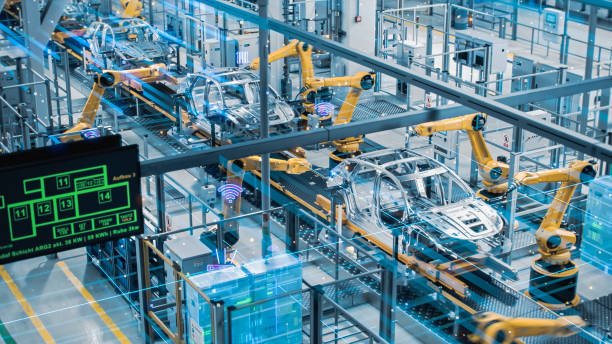Hyper-Personalized Mass Production: The Next Frontier
Customization at scale is revolutionizing manufacturing paradigms. This article explores how hyper-personalized mass production is reshaping industrial strategies, offering consumers tailor-made products without sacrificing efficiency. We'll delve into the technologies enabling this shift, the challenges manufacturers face, and the potential impact on consumer behavior and market dynamics.

The Evolution of Manufacturing Paradigms
Manufacturing has undergone several significant shifts since the Industrial Revolution. From craft production to mass production, and later to lean manufacturing, each paradigm change has brought increased efficiency and productivity. However, these approaches often sacrificed personalization for scale.
The advent of hyper-personalized mass production marks a new era, one where customization and scale coexist. This paradigm leverages advanced technologies like artificial intelligence, machine learning, and additive manufacturing to create unique products at speeds and costs comparable to traditional mass production methods.
Enabling Technologies
At the heart of hyper-personalized mass production are several key technologies:
-
Advanced Data Analytics: Big data and AI algorithms analyze consumer preferences and behaviors to inform product design and customization options.
-
Additive Manufacturing: 3D printing technologies allow for the creation of complex, customized components without the need for expensive tooling changes.
-
Flexible Manufacturing Systems: Modular production lines and reconfigurable machines adapt quickly to produce different product variants.
-
Internet of Things (IoT): Connected devices and sensors enable real-time monitoring and adjustment of production processes.
-
Digital Twins: Virtual replicas of physical products and processes facilitate testing and optimization before actual production begins.
These technologies work in concert to create a manufacturing ecosystem capable of producing individualized products efficiently and at scale.
Challenges and Opportunities
While hyper-personalized mass production offers exciting possibilities, it also presents significant challenges:
-
Supply Chain Complexity: Managing the logistics of diverse components for customized products can be daunting.
-
Cost Management: Balancing the costs of customization with the economies of scale remains a crucial challenge.
-
Quality Control: Ensuring consistent quality across varied product configurations requires sophisticated monitoring systems.
-
Design Complexity: Creating modular designs that allow for personalization without compromising functionality or aesthetics is a complex task.
However, these challenges also present opportunities for innovation. Companies that successfully navigate these hurdles can gain a significant competitive advantage in their markets.
Impact on Consumer Behavior and Market Dynamics
Hyper-personalized mass production is reshaping consumer expectations and market dynamics:
-
Increased Customer Engagement: Consumers become active participants in the design process, fostering brand loyalty.
-
Shift in Marketing Strategies: Marketing efforts focus more on highlighting customization options and the uniqueness of products.
-
Inventory Management Revolution: On-demand production reduces the need for large inventories, minimizing waste and risk.
-
Niche Market Expansion: The ability to cater to specific preferences allows companies to target niche markets more effectively.
-
Sustainability Implications: Customization can lead to products that better fit consumer needs, potentially reducing waste and overconsumption.
Key Strategies for Implementing Hyper-Personalized Mass Production
• Invest in modular product architecture to facilitate customization
• Develop robust data collection and analysis capabilities
• Foster a culture of innovation and flexibility within the organization
• Build strong partnerships with technology providers and suppliers
• Prioritize customer education about customization options and benefits
As hyper-personalized mass production continues to evolve, it promises to reshape not only manufacturing processes but also the relationship between consumers and products. By offering tailored solutions at scale, this approach has the potential to create more satisfied customers, more efficient production systems, and more innovative business models. The companies that successfully implement these strategies will be well-positioned to lead in this new era of manufacturing.





